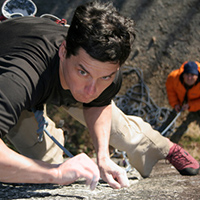Trust is central to human existence. Like all social animals, human beings have an instinctive need to co-operate and rely on each other to satisfy their most basic emotional, psychological, and material needs.
Without trust, we are not only less happy as individuals but also less productive in groups. Research has linked the virtues and benefits of trust to economic prosperity, societal stability, and even human survival. The powerful effect of trust is that it enables co-operative behaviour without costly and cumbersome monitoring and contracting.
In short, trust is a form of social capital that enhances performance between individuals, within and among groups, in small businesses and in larger collectives, like organisations, institutions and nations.
Yet, even though the decision to trust is so important, most of us can provide only rudimentary explanations of why we choose to trust certain people, groups, and institutions and not others. Trust, like love and happiness, is difficult for people to explain in clear, rational terms. We extend trust with only a vague sense of our reasons for trusting, and we unknowingly create an incentive and a market for untrustworthy opportunists who rely on a steady supply of naive trustors. In not understanding trust, we may also fail to grasp why someone might be wary of giving us his or her trust. Worst of all, we may sometimes act unintentionally in ways that erode others' trust in us.
Here are some tips on building trust within your teams:
- Teams with long life spans, like top executive teams or small family orientated businesses, typically need to share information and coordinate so that trust helps performance.
- Because teams with long life spans have more experiences together, they are more likely to come into conflict; periodic retreats or meetings may be needed for intensive relationship development and repair (if needed).
- When interdependence among members is high, trust is critical.
- When members are intensely identified with the team, cohesion within the team may increase.
- Virtual teams require a more deliberate trust-building process centered around communication practices and making careful use of the few occasions where members are physically together. Virtual teams require more structure and attention to communication and to building and maintaining relationships.
When there is a change in team membership, like a new team member joining or one leaving, it is important to recognise that it is time for another team-building session to rebalance the team dynamics.
With thanks to: Coach2Coach e-newsletter, December 8, 2011.



























